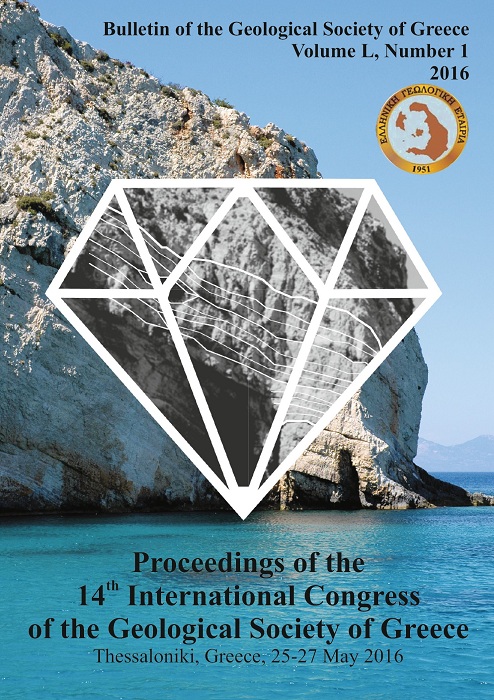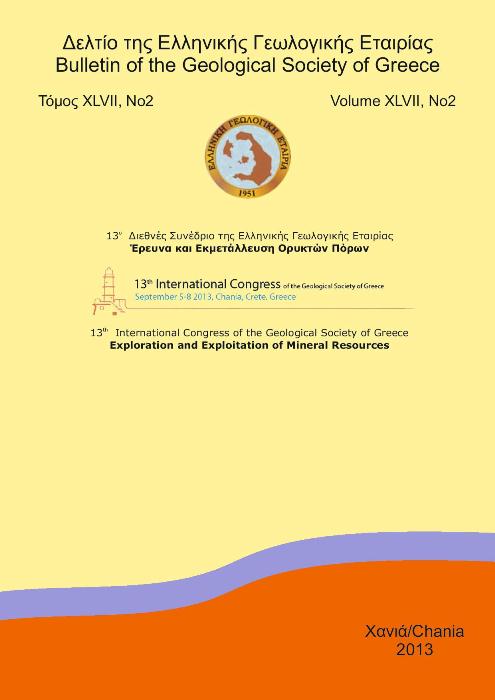Analyzing Geology textbooks for secondary school curricula in Greece and Spain: Educational use of geological heritage

Περίληψη
Η διδασκαλία της γεωλογίας, ως ανεξάρτητου γνωστικού αντικειμένου στα αναλυτικά προγράμματα της δευτεροβάθμιας εκπαίδευσης, έχει σταδιακά μειωθεί κατά τα 20 τελευταία χρόνια στις περισσότερες ευρωπαϊκές χώρες. Στην περίπτωση της Ελλάδας και της Ισπανίας μέσα από τα αναλυτικά τους προγράμματα έχει ορισθεί η γεωλογία ως συμπληρωματικό τμήμα της βιολογίας, της γεωγραφίας και των περιβαλλοντικών επιστημών. Όμως, η γεωλογία και οι γεωεπιστήμες δεν είναι θυγατρικά αντικείμενα αυτών των φυσικών επιστημών. Ο δευτερεύων ρόλος που δόθηκε στη γεωλογία δημιουργεί σοβαρή ανησυχία στη γεωλογική κοινότητα λόγω της ουσιαστικής μείωσης του περιεχομένου της γεωλογίας στα προγράμματα σπουδών της δευτεροβάθμιας εκπαίδευσης, τα οποία πιθανώς να οδηγήσουν σε μείωση των φοιτητών γεωλογίας στα πανεπιστήμια και τελικά έλλειψη γεωλόγων στην κοινωνία. Μέσα από την παρούσα εργασία προτείνεται η ενσωμάτωση της γεωλογικής κληρονομιάς στα σχολικά εγχειρίδια και η χρησιμοποίηση της ως παιδαγωγικού εργαλείου. Για το σκοπό αυτό πρέπει να γίνει χρήση κατάλληλων θεμάτων της γεωλογικής και παλαιοντολογικής κληρονομιάς, καθώς επίσης και γεωμορφών και απολιθωματοφόρων θέσεων τα οποία να είναι κατάλληλα για να επεξηγήσουν φυσικές διαδικασίες καθώς και την ιστορία της Γης. Αυτό μπορεί να προσφέρει ένα πολύτιμο εργαλείο που θα δημιουργήσει κοινωνικό και πολιτικό ενδιαφέρον τόσο για τις γεωεπιστήμες όσο και για τη γεωλογική κληρονομιά, καθώς επίσης και για να δημιουργήσει ενδιαφέρον και ενθουσιασμό στους μαθητές της δευτεροβάθμιας εκπαίδευσης σχετικά με τη γνώση της Γης.
Λεπτομέρειες άρθρου
- Πώς να δημιουργήσετε Αναφορές
-
Meléndez, G., Fermeli, G., & Koutsouveli, A. (2007). Analyzing Geology textbooks for secondary school curricula in Greece and Spain: Educational use of geological heritage. Δελτίο της Ελληνικής Γεωλογικής Εταιρείας, 40(4), 1819–1832. https://doi.org/10.12681/bgsg.17143
- Ενότητα
- Geosciences and Culture

Αυτή η εργασία είναι αδειοδοτημένη υπό το CC Αναφορά Δημιουργού – Μη Εμπορική Χρήση 4.0.
Οι συγγραφείς θα πρέπει να είναι σύμφωνοι με τα παρακάτω: Οι συγγραφείς των άρθρων που δημοσιεύονται στο περιοδικό διατηρούν τα δικαιώματα πνευματικής ιδιοκτησίας επί των άρθρων τους, δίνοντας στο περιοδικό το δικαίωμα της πρώτης δημοσίευσης. Άρθρα που δημοσιεύονται στο περιοδικό διατίθενται με άδεια Creative Commons 4.0 Non Commercial και σύμφωνα με την οποία μπορούν να χρησιμοποιούνται ελεύθερα, με αναφορά στο/στη συγγραφέα και στην πρώτη δημοσίευση για μη κερδοσκοπικούς σκοπούς. Οι συγγραφείς μπορούν να: Μοιραστούν — αντιγράψουν και αναδιανέμουν το υλικό με κάθε μέσο και τρόπο, Προσαρμόσουν — αναμείξουν, τροποποιήσουν και δημιουργήσουν πάνω στο υλικό.





